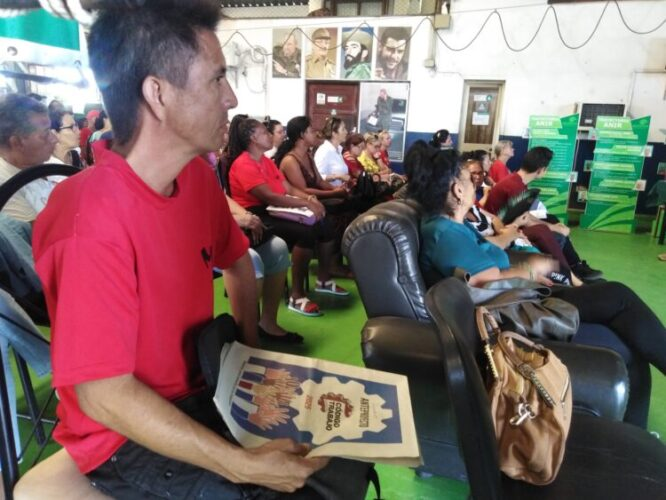
Camagüey, October 17- Nearly 50 percent of the planned meetings for the consultation on the Draft Labor Code have been held in Camagüey to date.
According to Richard Ramírez Arias, member of the Secretariat of the Provincial Committee of the Cuban Workers' Central Union (CTC, for its acronym in Spanish), although slightly more meetings than scheduled have taken place so far, various causes have led to the suspension of others, which will be rescheduled later.
The labor leader also emphasized that the key aspect of the process is collecting opinions and suggestions; so far, nearly 4,500 interventions and over 2,030 proposals have been gathered.
Among the main topics are the need for decent wages, the importance of establishing working hours for multiple job holders, and approving this option for managers and officials.
Workers in Camagüey have also advocated for paid leave regardless of its cause, establishing deadlines for resignation requests, and guaranteeing 60 percent salary payment during work interruptions.
However, despite the promotion of the process, meeting minutes have revealed that in some areas, especially Sierra de Cubitas and Najasa, attendees neither proposed ideas nor gave opinions, Ramírez Arias noted.
Because of this, he called for prior discussion about the draft’s elements to improve understanding.
One sector advancing in the consultation is Communications, Computing, and Electronics, as noted by the provincial bureau secretary in an interview with Radio Reloj.
From this group, proposals include additional pay for extra tasks due to absent coworkers and reducing the social service term from three years to two, according to María de los Ángeles Mesa, General Secretary of the Provincial Bureau.
Meanwhile, non-state workers praised the salary protection established for cases of work interruption, termination of employment, or entity closure.
Each idea and opinion, Ramírez Arias summarized, will enrich the legal text, which will be approved by deputies in the Cuban Parliament. (Text and photo: Gretel Díaz Montalvo / Trabajadores Digital)